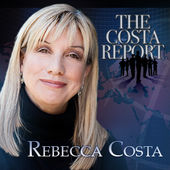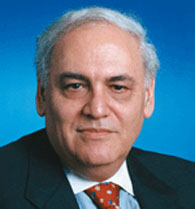When it comes to waging war, does ideology matter? Â Richard Perle, former foreign policy and defense advisor to Presidents Reagan and Bush, says no. Â According to Perle, combating ideology is a losing game. Â He urges leaders to view ISIS the same way it views any hostile state. Â “We have to fight the means they are using, almost independently of what is motivating them,” said Perle.
Perle reminds us that in recent years ISIS has graduated from a rogue terrorist network to a fully functioning state â a state which has territory, defined borders, a military, a viable economy, and a governing body with clear policies and procedures.  ISIS citizens pay taxes, abide by state laws, and conduct business with other nations in much the same way the citizens of other states do. In 2015 CNN reported the Islamic State earned an estimated $1-$2 million U.S. dollars a day in oil sales alone.  And as ISIS acquires and develops more territory, their ability to fund a larger, more sophisticated military campaign grows â so does their recruitment success.  “Every time ISIS takes territory⦠it inspires people around the world of the Muslim faith to join up with ISIS,” remarked Perle. “Kurdish leaders tell me that if ISIS were able to take even part of Baghdad – and hold it for even a few days – tens of thousands of new recruits would sign up to join.”
From the seizure of Mosul, to the massacre in Sinjar, to the allegiance of extremist group Boko Haram in Nigeria, there’s no denying that ISIS has momentum on its side. Since the caliphate was established, the Islamic State has taken credit for more than 60 attacks in 20 countries, killing close to 3,000. What’s more, official branches have been reported in Libya, Egypt, Yemen, Saudi Arabia, Algeria, Afghanistan, Pakistan, Nigeria and the North Caucasus, Morocco, Lebanon, Jordan, Turkey – even Israel. According to Perle, shutting down ISIS’ ability to secure territory and absorb more extremist factions (such as the recent assimilation of former Taliban forces in Afghanistan) is one example of attacking means rather than ideology. Â Another is closing down ISIS’ ability to sell oil on the open market, and stopping the flow of money and weaponry by sympathetic allies. Â These measures have nothing to do with ideology. Nothing to do with motive. Â Nothing to do with Islam.
Here, Perle has a point. Â After all, no one ever described World War II as a ‘religious war’ in spite of the fact that – by an overwhelming majority – the Japanese were Buddhist. Â And no one worried about Hitler’s religious beliefs, or those of Alexander the Great, Genghis Kahn, Marc Anthony, or Attila the Hun. Their terrorist reigns came to an end when their means were destroyed. Â Their ideology was largely irrelevant.
The beliefs, which motivate and bind our enemy, may well be the biggest diversion going. And the most dangerous. Â For history has proven time and time again that ideology is no match for hunger, cold, disease and strife. Â No match for the loss of territory, a viable economy and government or forward momentum. Â Perle concludes, “We have to destroy the myth that the caliphate is the future – and demonstrate that it is a failure. Â The way to combat the successes they’re having is by delivering defeats!” And the way to deliver those defeats is to take aim at means.
You can hear this episode On Demand anytime or Listen Live to The Costa Report every Tuesday at 6am PST.







